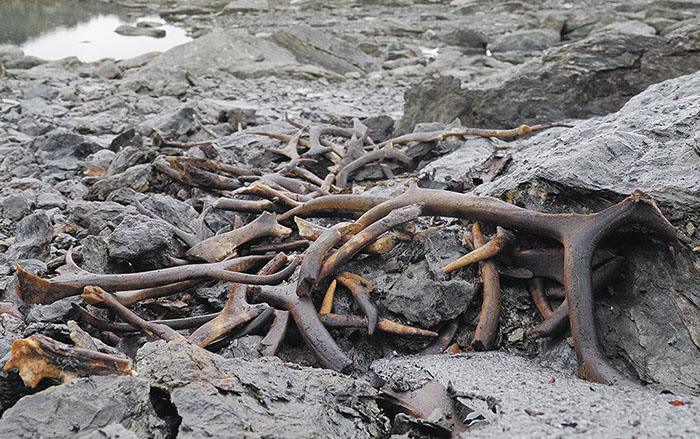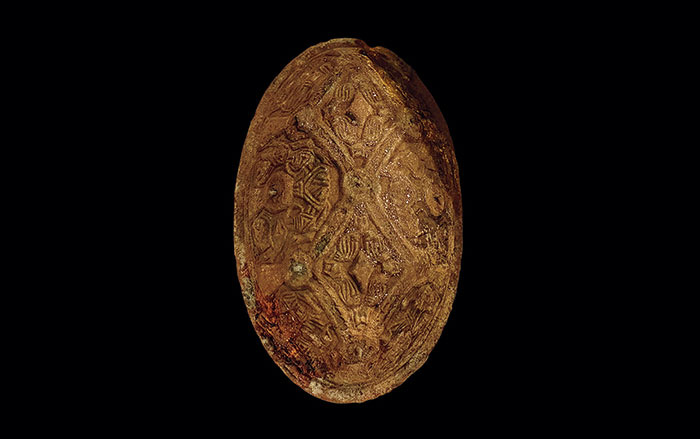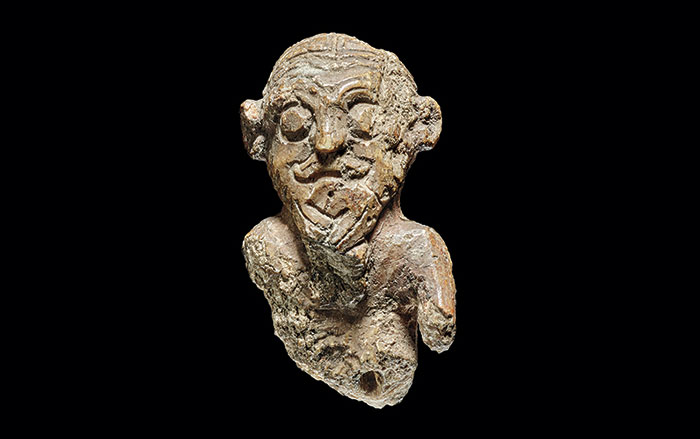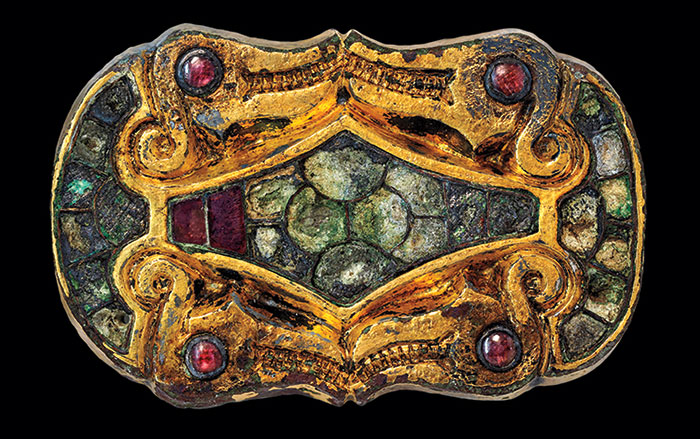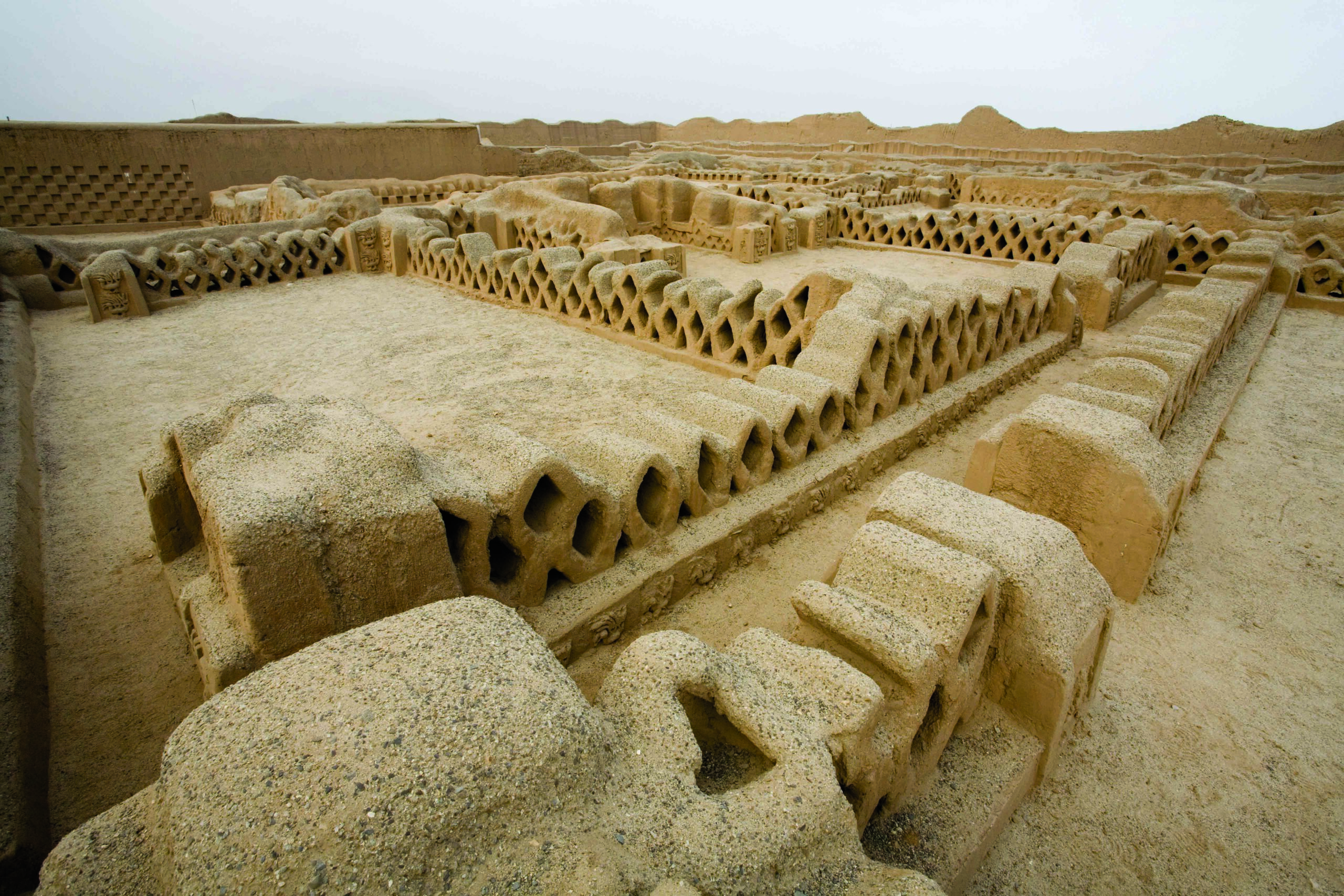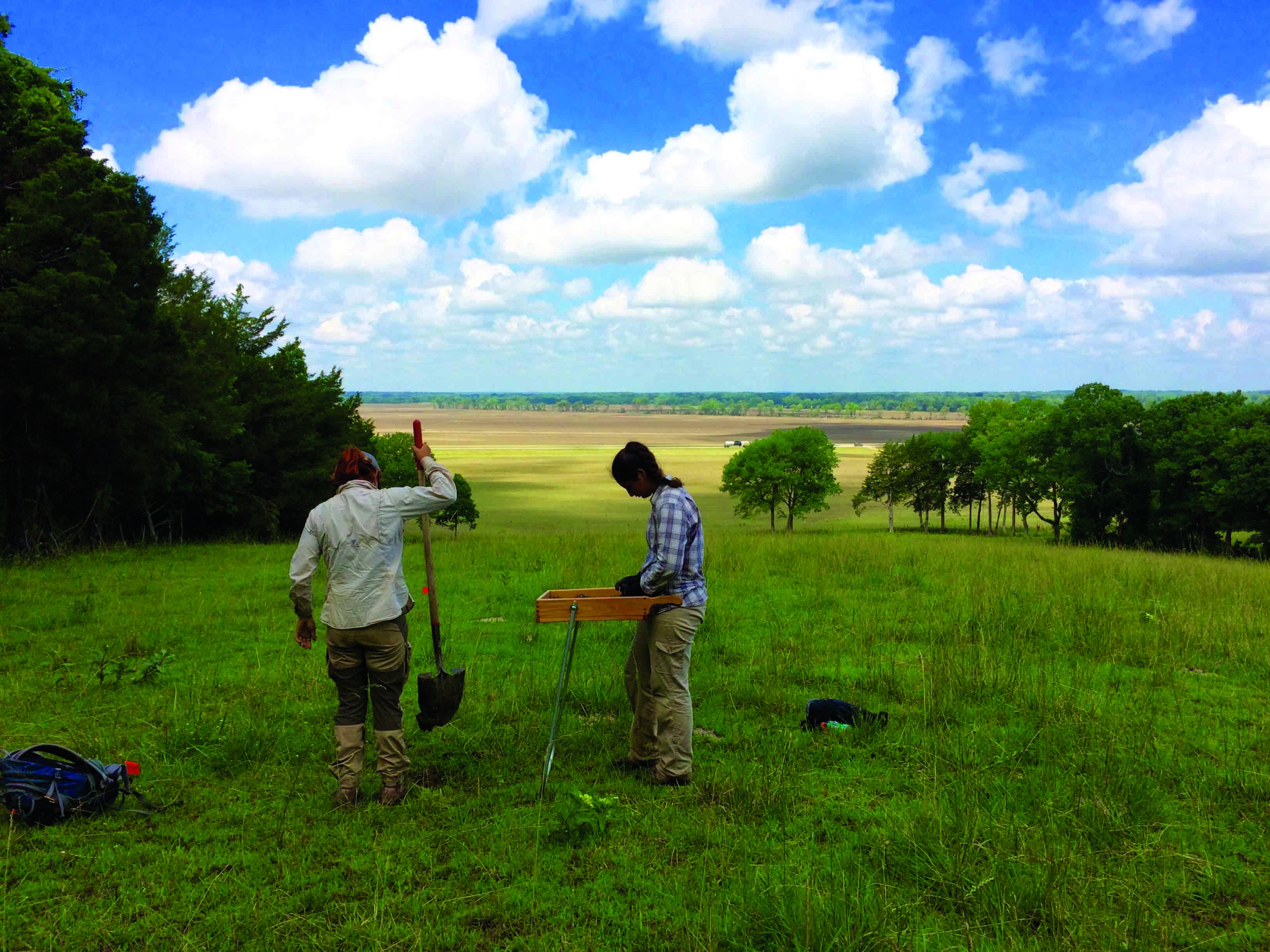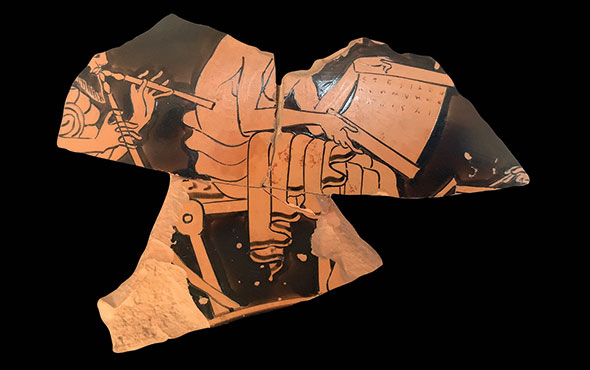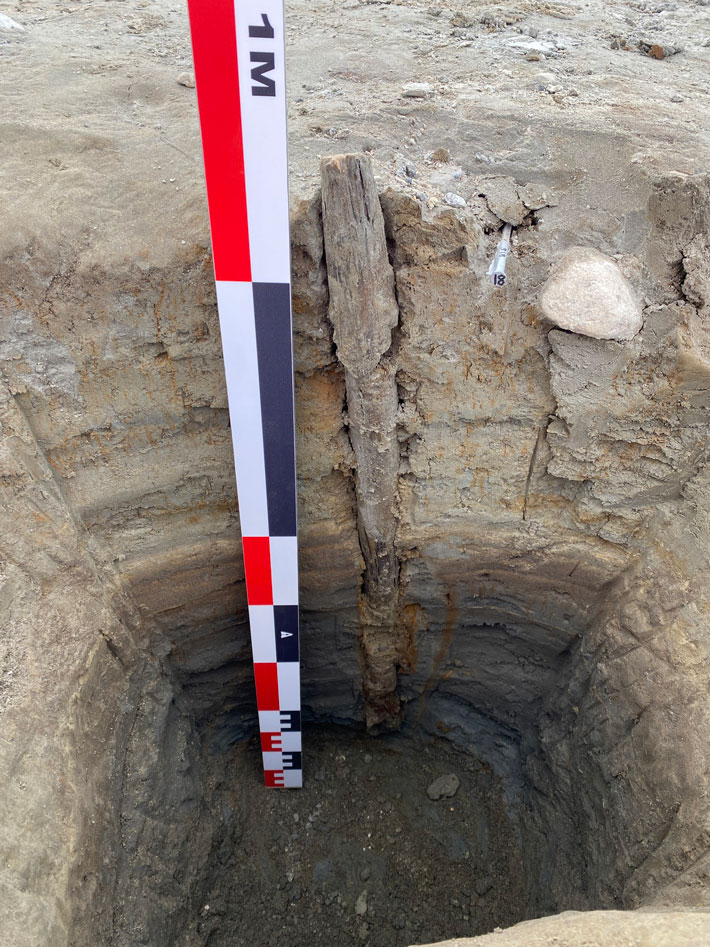
OSLO, NORWAY—Science Norway reports that archaeologists from the Museum of Cultural History in Oslo are investigating four 7,000-year-old fish traps in Lake Tesse, which is located in southern Norway’s Jotunheimen Mountains. The well-preserved traps, made of poles, were spotted by a hiker when the lake was drained to produce power. “The poles are pointed at the end and were clearly driven into the seabed with quite a bit of force,” said archaeologist Axel Mjærum. “The pointed ends are slightly damaged at the tip, so we can see that they have worked really hard to get them into the seabed.” Some 40 to 50 poles were used to create a chamber to trap and hold the fish, which could then be scooped up with a net. Study of tool marks on the poles and the dendrochronology of the wood could allow the researchers to determine if the traps were used over a long period, and how they were maintained. Fishing, Mjærum explained, may have served as a reliable food source when Paleolithic people came to mountains seasonally to hunt reindeer. To read about other artifacts that are emerging from ice in the Jotunheimen Mountains as a result of global warming, go to "Letter from Norway: The Big Melt."


